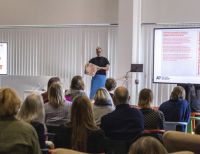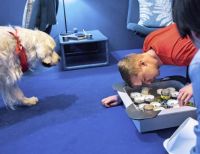Efforts by Aalto University School of Business to influence society, and work on behalf of sustainable development got good marks from students in the Positive Impact Rating (PIR) evaluation. The School of Business finished at the second-highest level of the five-step PIR, making it a transformational school. A total of 47 schools of business from 21 countries took part in the PIR evaluation.
‘It is important to map out the views of our students on matters affecting society, and especially on sustainable development. Students want to be heard, to influence positive change in our school, and to be involved in creating a better world’, says Helmi Nuortimo, a business student, who is responsible for matters related to sustainable development on the board of Aalto University Business Students (KY).
We still want to improve
The good PIR result was positive news for the administration of the School of Business, but proposals by the students for development are also being listened to carefully.
‘Multidisciplinary work supporting sustainable development both in teaching and research are at the centre of our school's strategy. It is great that this is recognised by our students, whose evaluations determine the Positive Impact Rating. The schools of business all over the world have a significant impact on society through their graduating students. For us at Aalto, the Positive Impact Rating is an important measure of our motto - Better Business - Better Society’, says Dean Timo Korkeamäki.
‘We did well in the PIR but we want to continue to improve what we do. We will carefully examine the results and the suggestions for improvement given in the evaluations of our students and take them into consideration in the planning of our activities’.
A key goal of the PIR is to serve as a tool with which schools of business around the world will learn to understand what sustainable development and societal effectiveness mean from the students’ point of view. The rating, which complements traditional university rankings, is aimed at getting schools of business to develop and improve their activities.
‘The PIR also shows leading schools of business how they can continue to improve their activities”, says Katrin Muff, President of the Positive Impact Rating Association.
In the PIR implemented at the turn of the year 2020-2021 students also assessed how the Aalto University School of Business confronts the challenges of sustainable development and how it prepares its students to work as responsible specialists and managers. The material was collected by the Aalto University Business Students (KY) and the Aalto Sustainability Club. A total of 189 bachelor's and master's students responded to the survey.
The Positive Impact Rating was founded by experts of university level education in business studies together with worldwide NGOs such as the environmental organisation WWF, Oxfam, and the UN Global Compact. The international student organisations oikos, AIESEC, and Net Impact are involved with PIR.
Further information:
















